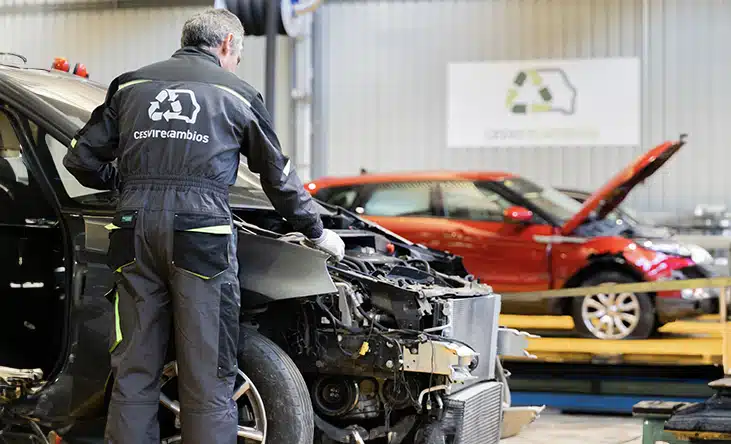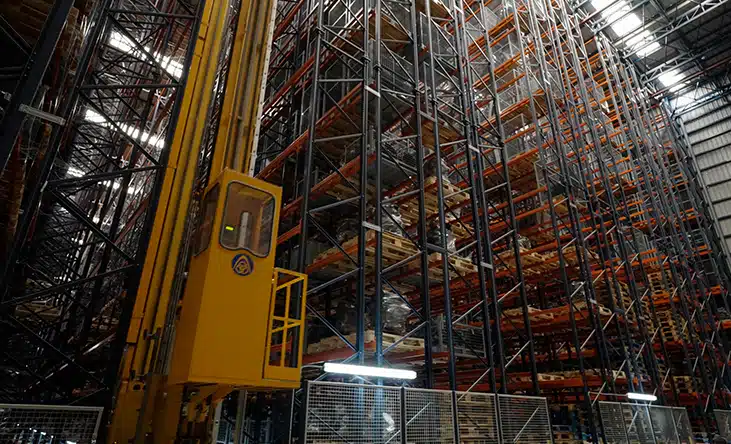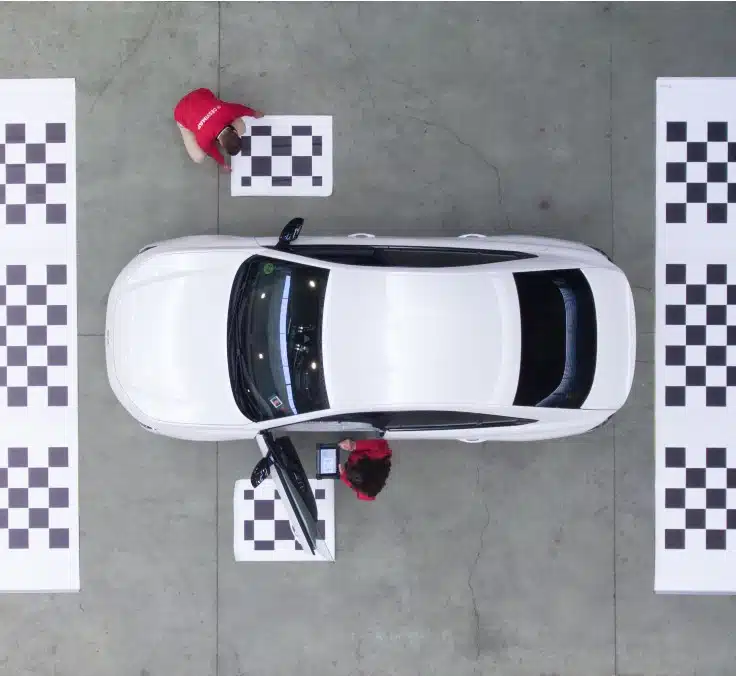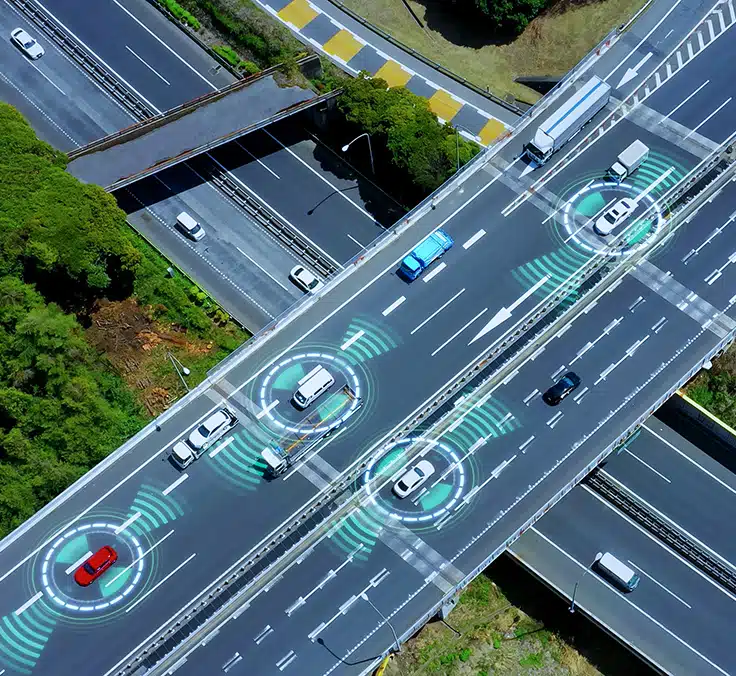INNOVATION | 05.22.2024
The connected industry’s impact on the automotive sector
As Industry 4.0 emerges and solidifies its position as the manufacturing standard, the automotive sector has experienced a profound digital metamorphosis, led by breakthroughs like artificial intelligence, advanced analytics, and the Internet of Things (IoT). CESVIrecambios, an Authorized Treatment Center (CAT) of CESVIMAP, the R&D Center of MAPFRE, was among the first of its kind to implement industry-specific technology in the early 2000s.
In recent years, the automotive industry has been significantly transformed by the adoption of emerging technologies found under the Industry 4.0 umbrella. This paradigm shift has changed vehicle design, manufacturing, and maintenance methods, redefining the interaction between machines and humans on assembly lines.
Thanks to innovations such as artificial intelligence (AI), the Internet of Things (IoT), and advanced robotics, production plants have become highly efficient and automated spaces. These advances make it possible for the industry to meet the growing demand for consumer personalization and to achieve higher standards of sustainability and energy efficiency, among many other benefits.
The current landscape of Connected Industry
Industry 4.0 has brought an unprecedented level of flexibility and efficiency to the automotive sector. With the advent of intelligent manufacturing systems, assembly lines can automatically adjust to produce different car models, optimizing time and production costs. The digitalization of the supply chain has bolstered transparency and enhanced coordination throughout the different links of the chain, resulting in smoother management and fewer errors or delays.
The key innovations driving Industry 4.0 in the automotive sector include artificial intelligence (AI), which is used to anticipate and predict maintenance, inventory, etc., or to optimize logistics routes, among other applications; the Internet of Things, which facilitates centralized connectivity and control of machinery and devices throughout the value chain; or advanced robotics, which has revolutionized assembly lines. Manufacturers such as BMW and Toyota, for instance, have adopted collaborative robots that work alongside humans without physical barriers, increasing productivity and safety.
Continuous adaptation at CESVIrecambios
CESVIrecambios has taken a progressive approach to incorporating Industry 4.0 innovations into its operations, demonstrating a steadfast commitment to technological advancement and adaptation. It’s one of the first vehicle treatment centers to implement this technology in the industry.

The company has implemented advanced data automation and analysis systems to streamline the life cycle of wrecked vehicles, from receipt to dismantling and recycling. This transformation has increased process efficiency and made material separation and classification more accurate, which is critical to maximizing component reuse and minimizing environmental impact. By integrating artificial intelligence and machine learning solutions, CESVIrecambios has been able to anticipate operational needs and adapt its workflows in real time. This has strengthened its ability to respond to market fluctuations and regulatory requirements.

In its transition to more sustainable practices, CESVIrecambios has embraced the principles of the circular economy, prioritizing waste reduction and resource recovery. This strategy benefits both the environment and the business value chain by providing materials at reduced costs and with a lower environmental impact. Moreover, the integration of human-in-the-loop systems has enabled decisions to be made from a human perspective, ensuring that innovation complements and enhances employee skills.
“CESVIrecambios stands out for its commitment to shaping a more integrated and sustainable future within the automotive industry. We are firmly committed to implementing advanced technologies and innovative strategies that not only optimize the efficiency of our operations but also promote environmentally friendly production practices. We demonstrate this commitment by adopting circular economy practices and integrating systems that place both people and the planet at the heart of our industrial processes,” commented Mª José San José, Manager of CESVIrecambios.
Europe looks to the future with Industry 5.0
Europe is headed for a promising future with the introduction of Industry 5.0, an approach that puts the human factor at the center of industrial processes and strengthens sustainability.
This new paradigm seeks efficiency through automation and artificial intelligence, emphasizing human-machine collaboration, personalized production, and the adoption of environmentally and socially responsible practices. Industry 5.0 promises to further revolutionize the way vehicles are designed and manufactured, prioritizing adaptability and ensuring minimal to no environmental impact.
In the medium and long term, this transition is expected to make companies more resilient and competitive, shaping a more sustainable future for the industry. This approach ensures that technological and innovation progress is in harmony with environmental needs and societal expectations, creating new foundations for industrial development in Europe.
RELATED ARTICLES:




